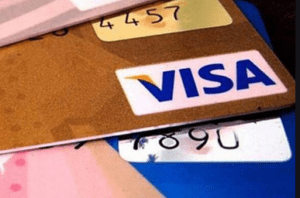Building Credit – Building credit without credit cards is possible even though having one can or two can help you build your credit a lot faster. When you use a credit card, you can decide how much you want to charge as well as how much you want to repay each month. As you make those decisions, a credit card gives some additional insight into how you make independent credit management decisions. For this reason, a credit card or two can weigh a bit more heavily in credit score calculations.

Building Credit Without a Credit Card
Building Credit. Understand this fact that you can build a good credit history and have strong credit scores, without a credit card. However, you have to keep making consistent on-time payments on installment loans, like a car loan, which demonstrates that you are a reliable borrower.
With a rich history of on-time installment loan payments, it will reflect in good credit scores even if you don’t have a credit card.
If you are looking for ways to build credit without a credit card, here are some of them:
Keep Paying Old Bills
If you have years of on-time payments and the age of the account will boost your score. An account in good standing is factored into your score until 10 years after it has been paid off and closed thus you can’t afford to miss payments.
Understand Your FICO Score
Your FICO score is determined by the following:
- Your payment history – 35%
- Credit utilization – (amount owed vs. total available credit) : 30%
- Account age/length of credit history – 15%
- New accounts/hard inquires – 10%
- Credit mix/type of credit used – 10%
The VantageScore, which is also another consumer credit rating system, uses similar criteria, although in a slightly different formula developed by three credit reporting agencies (Experian, Equifax, and TransUnion).
Notably, the most important factors are establishing a history of on-time payments to all creditors and keeping debt low in relation to the amount of credit available to you (known as the credit utilization ratio).
Report Your Rent
Consumers with subprime or unscorable credit. Reporting rental payments is a very smart move. An Experian study discovered that consumers with “thin” credit files. Who added rental history made them scoreable. Most of them move straight to the prime credit category. On the other hand, consumers who already had credit scores. Saw their scores rise by an average of 29 points.
Currently, all of the major credit reporting agencies now include rent payments (when reported) in the consumer credit file. Rental payment history is not factored into FICO scores, however. It may be included in a specialty credit report provided to landlords. Rental history is included in the VantageScore. And can even boost the consumer’s credit score within one month.
Understand however that consumer can’t report their own rent. The property manager or landlord can report directly to the credit agency. Or the tenant can sign up with a third party rent reporter. These companies include Rental Kharma and RentReporters, also ClearNow, RentTrack and PayYourRent. Three rent reporters that collaborate with Experian RentBureau.
Keep Your Job
Even though employment does not factor into your credit score. But it does show up in your credit file. Some creditors like mortgage lenders. For instance, need to see a stable employment history to approve an application for credit.
Check With Your Utility Company
Most utility providers only report derogatory information to the credit bureaus. However, if you reside in Detroit. And you pay your bills on time, then you are in luck. DTE Energy reports all payment histories, be it positive or negative. Consumers that have a responsible habit of paying their bills. On time benefit from responsible management of this household expense.
If you are not in Detroit, you can contact your utility provider to find. Out if it reports to the credit bureaus, and if it reports. Put the bill in your name. If your utility provider does not report to the credit bureaus. You can still use the positive payment history to your advantage. Most utility providers are quite excited to offer a letter of reference. For an account holder in good standing.
Take a Loan
By borrowing money and paying it back on time, you can prove that you are a good credit bet. Most loans are being reported as installment accounts. And the credit reporting agencies want to see that you can handle one responsibly.
You can go to your bank and inquire about a small personal loan. If you do not qualify for a traditional unsecured loan. You might qualify for a loan secured with collateral, like funds in a. Certificate of Deposit account that you cannot withdraw while the loan is outstanding.
If the banks are not an option for you. You can engage many peer-to-peer lenders like Prosper and Lending Club to report to the credit bureaus. They also have higher approval rates than banks.
Open a Store Credit Account
There are many stores that offer credit accounts. Most are reported as revolving credit, the same as a credit card. Home Depot offers project loans and many local home improvement stores also offer credit accounts. And some are available with the payment of a deposit in lieu of good credit. Staples office supply store on the other hand has several credit products. Which includes a personal credit account administered by Citibank. However, before you apply for store credit. Ensure the vendor reports to the credit bureaus.
Bear in mind also that some credit cards are better than. Others for people with poor credit scores, while others can help. Individuals recover from poor credit.
from WordPress https://ift.tt/38z6nFp
No comments:
Post a Comment